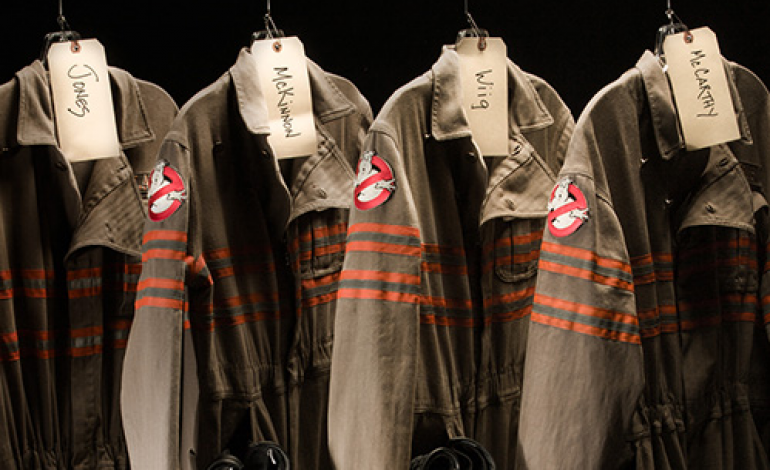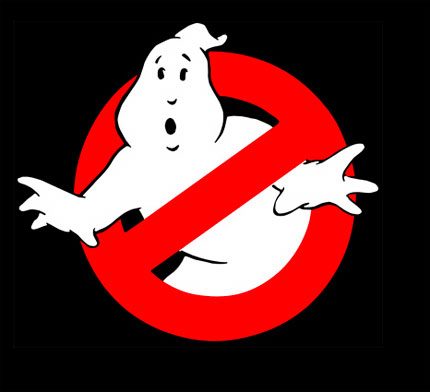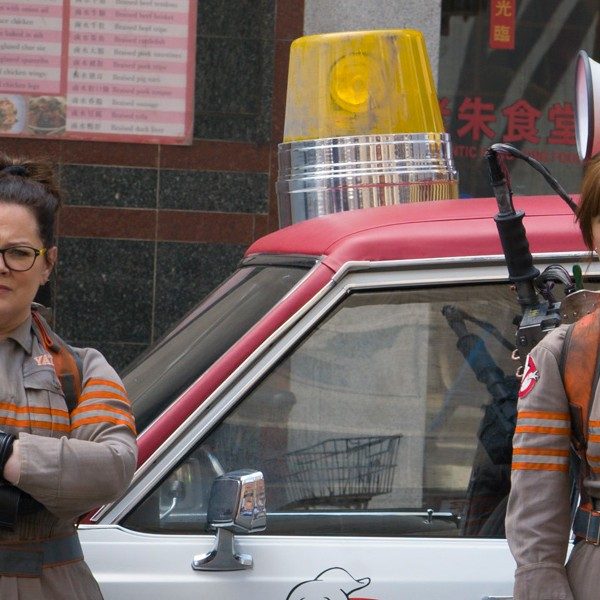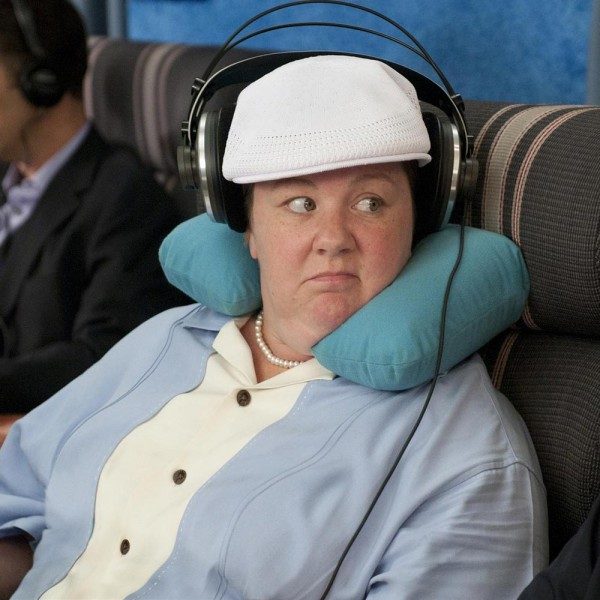

The most controversial movie of the year comes out this week. A $100+ million dollar movie that purports to challenge our entire belief system regarding gender roles and human relations. It’s courageous and heroic and powerful, and if you think otherwise, you hate all women. That’s right, it’s time for Paul Feig’s remake of Ghostbusters – a film so important that people are scared to talk about it.
Of course, as a man, my opinion about this movie is completely irrelevant because I’ve already been painted the enemy. Does that sound passive aggressive and snitty? Of course it does. Because passive aggressive and snitty has become the only way to discuss this movie. I mean Judd Apatow said that people who don’t like this Ghostbusters are the equivalent of Trump supporters. How do you begin to have a legitimate discourse with that mindset?
It’s pointless to run through the entire history of the film, but context certainly helps here. It’s Ghostbusters, one of the most beloved movies of the 1980s. Despite being mostly stagnant since the early 1990’s (a 2009 video game being the only major movement on the Ecto-front since the cartoon ended in 1991), the brand is still genuinely beloved. And it was just collecting dust in the IP basement of Sony. Director Paul Feig took it over because Dan Aykroyd was desperate for attention and Harold Ramis just died so he couldn’t complain. Feig decided to build his universe from scratch, cast his two Bridesmaids leading ladies Kristen Wiig and Melissa McCarthy, added two Saturday Night Live vets in Leslie Jones and Kate McKinnon, threw in Chris Hemsworth and … well, the Internet did what it always does – lost its crap.
Was there some anti-female hysteria and over-the-top panic about pandering connected to this movie and the cast? I’m willing to say “sure,” but to a far lesser extent than the media has painted. Like with almost every remake or reboot, the biggest issue people have is simply its mere existence. Even though the Ghostbusters franchise primarily consists of one classic movie from 30 years ago (plus a sequel and a cartoon, both of which are also decades old at this point), it’s a benchmark film for an entire generation. Any successor – be it in the same or a new universe – has gigantic shoes to fill. And while people might think they’d prefer a new sequel with the original cast, well, be careful what you wish for –
Anyone – man or woman – being cast as Ghostbusters would be met with antipathy simply because of connection we have to the first movies is too great. The best way to overcome this hesitancy is through quality. There will always be people who dislike something just for being, but it’s not that hard to win people over. If your movie functions well as a popcorn movie, which is what Ghostbusters is, most people will abandon their initial outrage. As for the “female cast” controversy? It’s not nearly the death knell it once was. McCarthy easily ranks among the most successful box office comedy star working today. And even in the primarily male-dominated, sci-fi action genre, female leads have become increasingly common and to great success. The remake of Battlestar: Galactica gender swapped two of its main Viper pilots, and that show is considered a landmark in television sci-fi. Marvel’s Jessica Jones is a critically-acclaimed series that doesn’t just feature a female lead, but a three-dimensional one – not merely a punchline for a stage diving accident (like some movies coming out this week). And consider The Force Awakens. Sure, it was part of the same universe as the classic films, but that could have been as much of a hindrance as it was a benefit. That movie had a female lead and also had to deal with the stigma of the prequels and the reputation of an even more beloved brand than Ghostbusters, and ended up being genuinely well-liked.
True, the new Ghostbusters had an uphill battle to climb, but it was far from being insurmountable. Then the first trailer hit… and it became the least liked thing ever on YouTube. Now could it be because of the concentrated misogynistic Internet conspiracy against the film, or could it be because the trailer was simply bad? (How dare I even imply such a thing.) Because the trailer was bad – not the worst trailer ever, but it certainly wasn’t good. What happened next is the Internet. The high percentage of negative votes got attention, which lead to manufactured outrage, which encouraged more people to vote down the trailer. Which lead to more accusatory click-bait articles. Which lead to more negative votes. Which lead to more accusatory click-bait articles. Negative attention breeds negative attention, it’s one of the universal truths about online commenting. It has less to do with genuine dislike towards the cast or women as a whole and more to do with the fact that people enjoy trolling for the sake of trolling. Especially when billion-dollar corporations and their mouth pieces throw hissy fits over the actions of relatively few people. Haven’t people learned how the Internet works yet?
Since then, Ghostbusters has defined its marketing campaign with a bizarre “us versus them” mindset. I can’t call it a catastrophe until seeing the opening weekend’s gross, but it certainly hasn’t been pleasant. Removed from any controversy, the ads and clips have been a flatline at best. Not anything to get upset over, but not anything to get excited over either. Yet instead of downplaying the Internet’s reaction and playing up its fun popcorn movie elements, “sexist backlash” has become the centerpiece of their media blitz. This $100 million+ spectacle needs your support on a moral and ethical level. 12 Years a Slave was treated with less reverence.
Initially, I viewed Ghostbusters as a “nothing better to do” movie; I wouldn’t go out of my way to see it, but for want of something to do, sure. Maybe it could be a fair but forgettable distraction, which is fine for summer. It looks light enough to kill two hours. I’m sure that’s how a lot of people would have viewed this film. But now? The movie is toting around way more baggage than it should, because Sony is ostracizing wide swaths of audience by telling them that their opinion is not just wrong, but based in prejudice. (After all, it wouldn’t be the focus of every interview and magazine article if the studio didn’t accede to it.) Why would I, or anyone, want to support that? It’s friggin Ghostbusters. It has jokes about slime getting in one’s crack. Get off your high horse and stop acting like this is the most important thing to happen to women since 19th Amendment.
Of course, in all this nonsense, one thing has fallen by the wayside – the movie itself (a relatively minor thing). The entire narrative is no longer what we’re to see on the screen, but about petty online squabbling. We’re no longer discussing the clips or the story, but the merits of social justice warriors and anti-social justice warriors. People talking about Ghostbusters is more of a crux to this movie than Ghostbusters itself.
By the time the movie comes out, will it be possible to view it ‘objectively’? Try as we might to be fair, will we be responding to the movie itself or to the marketing campaign that essentially calls us scumbags? All of the negative reviews will be tainted by accusations of patriarchy, misogyny, and sexism. Similarly, any positive review will be tainted with doubts of ‘does the reviewer really believe this, or does he/she feel compelled to speak positively about this movie lest he/she be attacked on social media?’ Without these external factors, this movie comes across as nothing more than another effects-driven summer tentpole movie with no substance – which isn’t a bad thing for a summer blockbuster. Now, it has become an eggshell-strewn minefield, and it will be difficult considering this movie without having that in the back of your mind.
So why is the movie being taken out of Ghostbusters. Far be it from me to question anything about this groundbreaking and seminal work, but maybe it’s because the movie just isn’t good. (How dare I!) Most $100+ million movies attempt to shy away from controversy because they want the four-quadrant appeal that connects with pure escapist fantasy. Instead, Ghostbusters is relishing in the hatred. Now, I ask, which is more likely? That this movie is so stunning and brave and people are scared of a major motion picture that is finally willing to standing up to oppression (what with such poignant and symbolic elements as Girl Slimer and shooting monsters in the groin) or that Sony has orchestrated a symphony of damage control to cut the legs off of any negative review before anyone has a chance to genuinely comment about the movie? And I’m sure Sony has far too much integrity to engage in some “lower the audience’s expectations so dramatically that ‘not that bad’ becomes genuinely good” strategy.
Of course, none of us has seen the movie yet, so all of this is a combination of speculation, theories, observations, and confusion. For all the controversy, Ghostbusters might actually end up being the best movie of 2016 – because God help anyone who says otherwise.



